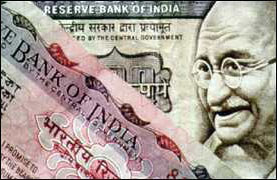Indian markets plunge as government presents interim budget
 New Delhi - Share markets plunged by about 3 per cent as India's United Progressive Alliance (UPA) government presented an interim budget in parliament Monday which doubled budgetary deficits and predicted difficult times ahead.
New Delhi - Share markets plunged by about 3 per cent as India's United Progressive Alliance (UPA) government presented an interim budget in parliament Monday which doubled budgetary deficits and predicted difficult times ahead.
Acting federal Finance Minister Pranab Mukherjee, while presenting the budget, said the move was inevitable in view of the slowing of the economy due to the global economic downturn.
General elections are scheduled to be held in India over a period of several weeks in April and May and the interim budget and vote-of-account includes initiatives for April to July. India's financial year runs from April to March.
The interim budget also includes spending and revenue estimates until March 31, 2010. A new government is expected to present a full budget and revised figures after assuming office in May.
Indian equities dived as Mukherjee presented the budget. The 30-share Sensex of the Bombay Stock Exchange dropped to 9,345.75 points, 3 per cent below its previous close.
The broader 50-share S&P CNX Nifty index of the National Stock Exchange was trading at 2,860.20 points, about 2.99 per cent lower than its last close about an hour past noon.
Mukherjee said though India had weathered the impact of the global economic downturn well, with gross domestic product (GDP) growth projected at about 7.1 per cent, down from the 9 per cent of the past three years, there was no room for complacency.
This still made India the second fastest growing economy in a world in the throes of recession, Mukherjee said, adding that the times were, nevertheless, tough.
"Extraordinary economic circumstances merit extraordinary measures. Now is the time for such measures," Mukherjee said.
Planned expenditure for fiscal year 2009-10 was pegged at 9.5 trillion rupees (about 195 billion dollars).
It included various measures for the sluggish export industry, for rural development, food, fertilizer and petroleum subsidies, atomic energy, infrastructure and welfare measures relating to health and education.
The defence allocation was increased to 1.41 trillion rupees in view of the security situation in wake of the Mumbai terror attacks, Mukherjee said.
The fiscal deficit for 2009-10 was forecast at 5.5 per cent while the revenue deficit was predicted at 4 per cent of the GDP.
The deficit for the current fiscal year was originally forecast at 2.5 per cent but Mukherjee said this was expected to climb to 6 per cent after various measures the government had taken to meet the economic slowdown.
The revenue deficit was expected to increase to 4.4 per cent against 1 per cent.
"Since the scope for revenue mobilization is bound to be limited in a period of economic slowdown, any increase in plan expenditure will increase the fiscal deficit," Mukherjee said opting not to change tax rates.
With elections coming up in a couple of months, the government also used the occasion to highlight the initiatives it had taken for "the common man" specially minorities, backward sections of society, women and farmers.
Analysts reacted cautiously, pointing out that the government would have to go for heavy borrowings to finance its spending plans and this may lead to higher interest rates and renewed inflationary pressures. (dpa)